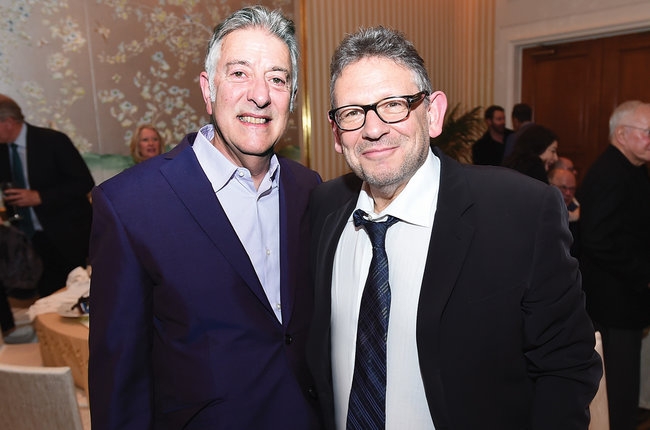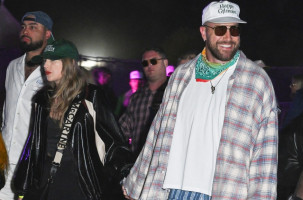Esteemed A&R executive Nigel Grainge died June 11 at age 70 after a storied career, during which he developed stars such as Sinéad O’Connor and the Steve Miller Band. After founding Ensign Records in 1976, he started and sold music publisher Dizzy Heights, worked as a consultant assisting artists like Robert Plant unearth old musical gems and founded the startup TunesMap to help fans find the worlds connected with their favorite songs. Here, Sir Lucian Grainge, chairman/CEO of Universal Music Group, remembers his older brother.
For as long as I can remember, my brother Nigel was obsessed with music. In pursuit of great music, he was never attracted to artists, or made records, based on what he thought the audience might want. When he decided to sign an artist, he made records he wanted to hear. If the audience didn’t like a given album, then maybe they were just wrong. For some, such unerring confidence might seem arrogant. Nigel was anything but. He was just a purist, and easily one the greatest A&R executives ever.
Nigel lived and breathed music almost from the time he could walk. That’s because our dad Cecil, who owned a record shop in South London, also loved music. On Nigel’s third birthday, dad started giving him a 78 rpm record every week. Those records covered every conceivable genre: from Beethoven to Ray Charles to Louis Armstrong to Bill Haley. That early, eclectic education combined with our father’s passion for melody -- which he instilled in both of us -- set Nigel’s course in life. By the age of five, he decided he had to work in music.
Nigel was almost 14 years older than me. When I was 12, Nigel was already in his mid-20s and working at Phonogram as a national retail marketer. His company car was a huge Vauxhall station wagon full of records, tape, sharpies, staple guns and posters. Every weekend, after lunch with our grandparents, I would swipe the key, clamber into the back and “borrow” as many records as I could. I still have many of those records today.
A few years later, when his career as an A&R man took off, Nigel got a fabulous green Triumph TR-6. I thought he was so cool. He would tool around with his girlfriend at the time, with me squeezed onto the parcel shelf behind the seats. They would take me along to gigs with them and it was on these journeys that we saw some of the seminal rock shows of the 1970s, including the Ramones and the Flamin’ Groovies at the Roundhouse. Most guys of his age and position wouldn’t schlep their kid brother to concerts, let alone as a third wheel. But Nigel was always, as his artists will attest, a man of extraordinary generosity. He was giving me my education in music.
Unlike many A&R people who might have passed on a band or two that later went on to huge success, Nigel lived with no regrets. He looked for artists who could keep producing great music over the long haul, regardless of failure, fame or fanfare. And while he could identify a hit from just a few bars on a scratchy demo tape -- and did so many times -- the number of albums a band sold was ultimately irrelevant. Because for Nigel, it was always about the music.
Nigel was an unapologetic maverick. He set impossibly high standards and his honesty could sometimes come across as harsh. But his authenticity, knowledge and integrity also attracted the best artists, and brought out the best in them. Above all else, he was a wonderful brother and I will miss him forever.









